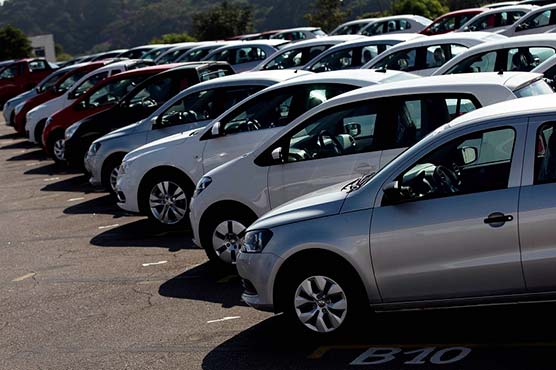General Motors sets 2035 goal for eliminating emissions from most cars

The goal to cut emissions by 2035 only applies to light duty vehicles.
NEW YORK (AFP) - General Motors on Thursday announced that it aims to make most of its cars and trucks emissions-free by 2035, as part of a wider campaign by the American auto giant to go carbon neutral.
The move is the latest by a major auto producer to shift away from gas-guzzling vehicles in favor of non-polluting alternatives over concerns that their industry is contributing to climate change.
"General Motors is joining governments and companies around the globe working to establish a safer, greener and better world," CEO Mary Barra said in a statement announcing the move.
"We encourage others to follow suit and make a significant impact on our industry and on the economy as a whole."
The goal to cut emissions by 2035 only applies to light duty vehicles, but GM said it also wants to become carbon neutral by 2040, which Barra said means removing emissions from all products and operations.
"Where removing emissions is not possible -- for example if the technology does not yet exist in those timeframes -- we will compensate for those emissions through carbon credits or carbon capture. Our preference will always be for removal of emissions," Barra wrote on LinkedIn.
Electric only future?
GM’s move would apply to the pickup trucks and SUVs that are popular in the United States, but the company made no mention of its heavy-duty lineup of trucks.
Similar plans are afoot elsewhere in the industry. Volkswagen has announced it wants to offer 70 electric vehicle (EV) models by 2030, and sell 26 million units in 10 years.
Tesla has already become the darling of investors who are convinced that the American electric vehicle manufacturer represents the future of the automobile, and its shares are worth much more on the stock market than traditional automakers.
GM has already indicated plans to expand its electric vehicle lineup, including by pledging to offer 30 models by 2025 in all four of its main brands -- Cadillac, GMC, Chevrolet, Buick.
It also withdrew from a lawsuit filed by former president Donald Trump’s administration challenging California’s right to set its own emissions standards.
But it was unclear if the latest announcement indicated it would produce electric vehicles exclusively.
"We are taking action toward making that the case," a spokesperson told AFP.
"It will require collaboration with our industry, governments and customers and we will bring everyone along, especially our employees, in that journey."
Pushed by politics
Any such move could face a long road to success: Electric car sales in 2019 accounted for only 2.6 percent of the global market, according to the International Energy Agency.
GM collaborated on its plans with the Environmental Defense Fund, whose president Fred Krupp called the move an "extraordinary step forward."
"GM is making it crystal clear that taking action to eliminate pollution from all new light-duty vehicles by 2035 is an essential element of any automaker’s business plan," he said.
Wedbush analyst Daniel Ives said GM’s decision indicates it intends to go "all in" on electric vehicles, fueled by the environmental goals of President Joe Biden’s administration and competition from other automakers.
"With the Biden Green Agenda on the horizon, we believe other automakers could follow GM’s lead domestically with Tesla continuing to run away with market share in this EV arms race," he said.
However iSeeCars Executive Analyst Karl Brauer said it seems unlikely GM can eliminate traditional vehicles from its lineup entirely.
"There will likely always be use cases where gasoline or diesel makes the most sense. EVs can and will replace a certain amount of the current gasoline market over the next decade, but it’s hard to imagine electric vehicle technology replacing all of them," he said.

